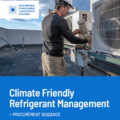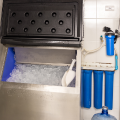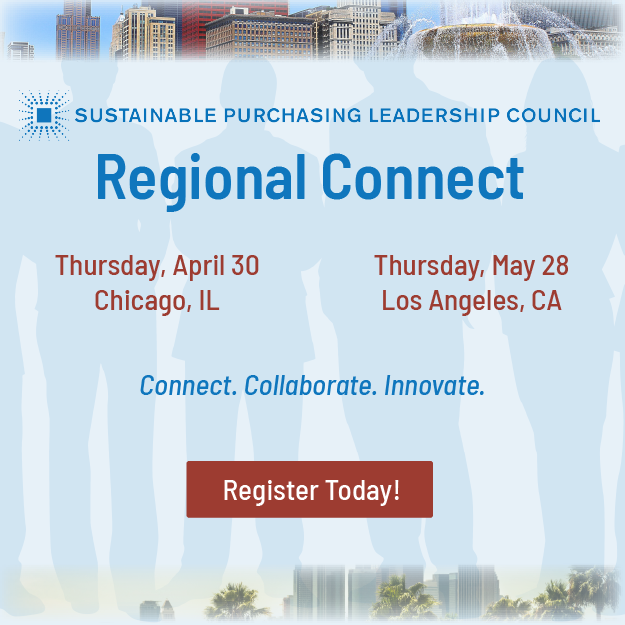Refrigerants Procurement Climate Collaborative
Hydrofluorocarbon (HFC)-based refrigerants—used in air conditioners, refrigerators, and heat pumps—represent a key opportunity for procurement to make meaningful progress on reducing its organizational greenhouse gas emissions. As a result, in partnership with the Refrigerant Emissions Elimination Forum (REEF), the Refrigerants Procurement Climate Collaborative (PCC) was convened.
What we do
Our multistakeholder collaborative of industry experts and sustainable procurement practitioners work to provide resources that scale the reduction and avoidance of institutional hydrofluorocarbon (HFC) refrigerants use.
As its first deliverable, the collaborative offers the Sustainable Refrigerant Procurement Toolkit—a set of practical resources to support best practices across the full refrigerant lifecycle. From buying low-GWP equipment to ensuring safe end-of-life disposal, the toolkit helps organizations credibly track and improve their emissions reductions efforts.
Our ask
We encourage all procurement and facilities professionals to take action now on reducing their greenhouse gas emissions through the use of this toolkit. We also look forward to exploring options to continue our work together in the months to come.
 Sustainable Refrigerants 1-pager: Reducing Refrigerant Emissions is a Real Win-Win
Sustainable Refrigerants 1-pager: Reducing Refrigerant Emissions is a Real Win-Win
A summary of why refrigerants matter and how to take action. A great resource for sharing internally with your teams or leadership to make the case for a more sustainable refrigerant management plan.
 Climate Friendly Refrigerant Management & Procurement Guidance
Climate Friendly Refrigerant Management & Procurement Guidance
The improved and updated full guidance document covers everything you need to know about sustainable refrigerant management, from purchasing to end of life disposal. Climate Friendly Refrigerant Policy and Specifications
Climate Friendly Refrigerant Policy and Specifications
Specific model contract and policy language that can be copied and pasted directly into your organization’s procurement policies and/or RFPs.
 Climate Friendly Refrigerants Inventory Workbook
Climate Friendly Refrigerants Inventory Workbook
Robust workbook designed to help you take inventory of your current refrigerants and identify areas of opportunity for improvement.
Our Team
|
|
*Co-lead
The Sustainable Refrigerants Toolkit was made possible by a grant from:
 |
 |
The Procurement Climate Collaborative (PCC) was established with support from these founding sponsors:

